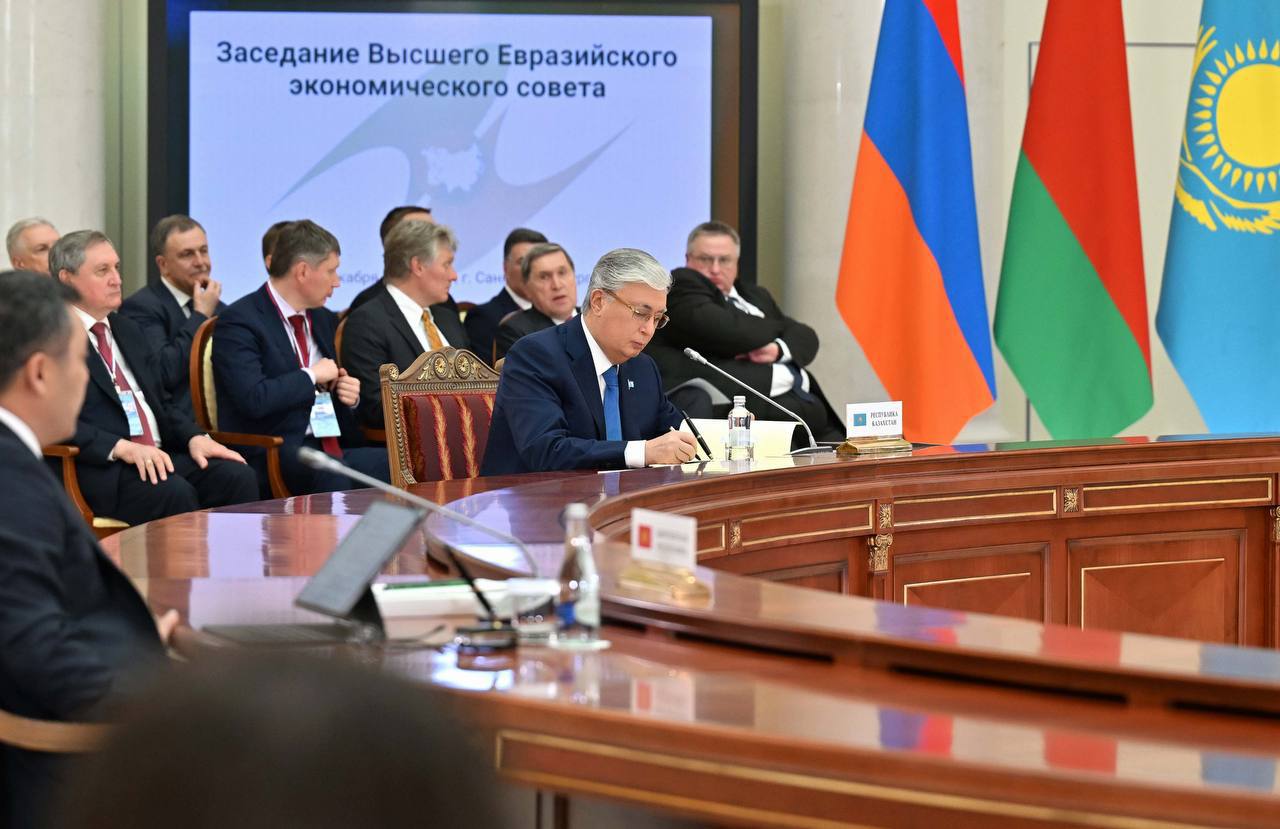Kazakhstan-Russia-Iran
Along this route, the possibility of building a fiber-optic communication line was proposed to be considered by the President of Kazakhstan Kassym-Jomart Tokayev at a meeting with the heads of the EAEU member countries in St. Petersburg.
According to him, this measure is necessary to connect to existing international lines running along the Indian Ocean coast. “This will not only create an alternative route for transit traffic in the Eurasian space, but also significantly strengthen the position of the EAEU in data logistics at the global level,” Tokayev said.
Earlier this month, Russian authorities announced their readiness to redirect Internet traffic through other countries in the event that Europe completely disconnects Russian operators from traffic exchange points.
Tokayev also said that the EAEU countries, through joint efforts, were able to “neutralize the consequences of current serious challenges,” but called for the removal of remaining barriers and restrictions.
“Despite the opening of customs borders, each country, unfortunately, continues to de facto protect domestic producers from competition with other members of the association. Therefore, we have to eliminate existing barriers and restrictions in the common market, as well as accelerate the introduction of uniform technical regulations,” Tokayev said.
On the sidelines of the meeting, a free trade agreement was also signed between the EAEU and Iran. The meeting participants in St. Petersburg signed a number of documents, including a declaration on the further development of economic processes within the EAEU until 2030 and for the period until 2045.
Members of the EAEU are Armenia, Belarus, Kazakhstan, Kyrgyzstan and Russia.


























